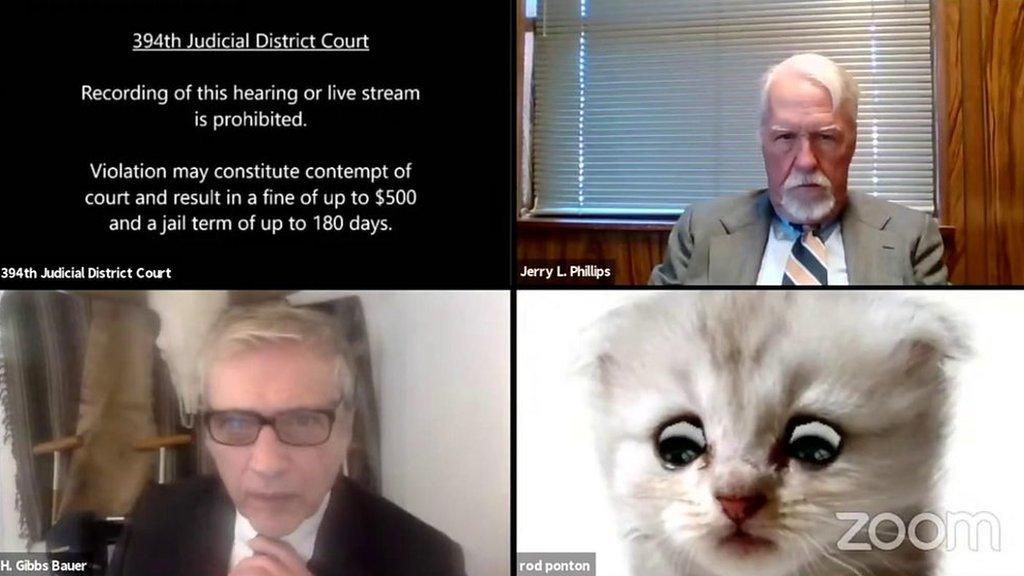Law: Young Welsh people lack confidence for legal career
- Published
'It's a who-do-you-know world'
Confidence problems among young Welsh people could lock them out of a career in law, a senior lawyer has claimed.
The Senedd's former chief legal advisor, Elisabeth Velina Jones, said not having role models or relatives in the business can be problematic.
Assumptions by the young that they won't make it is being challenged by a scheme to improve access and diversity.
Research has shown disproportionate numbers of solicitors and barristers attended private schools.
Last year, a summer scheme offering Year 12 students the chance to meet and be mentored by Welsh law professionals in London was rolled out to include Cardiff placements.
That partnership will continue remotely this summer. Applications close on Sunday.

Research has shown disproportionate numbers of solicitors and barristers attended private schools
"I think it's generally agreed that that there is an aspiration problem or confidence problem in Wales and amongst young people in Wales," said Ms Jones.
"There is a tendency to think that, because they come from particular parts of Wales that they will not make it.
"This is our small contribution towards solving that."
She explained the link between Legal Wales and the Lord Edmund Davies Legal Education Trust, or Ledlet, is helping create networks for youngsters who don't have family working in law.
Katie Rivers, 22, from Hirwaun, Rhondda Cynon Taf, is a Ledlet alumni who is now a scheme trustee.

Trainee solicitor Katie Rivers dubbed the legal profession "a bit of a 'who do you know' world"
"The legal profession in particular is a bit of a 'who do you know' world, your connections and networks really can take you far, and that was just something I didn't have," Ms Rivers said.
"There are so many different practice areas, if you don't know they exist it's really difficult to get your foot in the door."
Ms Rivers agreed young people sometimes lack the confidence to leave their communities, particularly without role models.
"It's not through lack of capability, it's that confidence to know you can do it and achieve those things," she said.
"Sometimes it feels when you say, 'I want to go to London,' it feels you're walking away from your community and there's a conflict there.
"It was really important for me to go back to my school while I was at university to say, 'I'm here, I'm at Oxford, I'm still Welsh, I'm a part of my community and nothing bad has happened!'"

Student barrister Harry Dickens had trouble getting work experience in the law as a Pembrokeshire schoolboy
Harry Dickens, 22, from Begelly, Pembrokeshire, is studying to become a barrister at Cardiff University.
As a carer for his disabled, single-parent mum, the options on his doorstep for work experience while at school were limited.
"The nearest court to me was Haverfordwest Magistrates, so it was difficult to see any practical or vocational opportunities within the law. You wouldn't meet people who were barristers or judges," he said.
"I think that's what Ledlet offered - to meet people within the law who have come from a wide range of backgrounds from all over Wales, and for them to say 'the law is open to you, regardless of your background'."
As the Ledlet and Legal Wales' summer scheme covers costs, and has been done remotely during the pandemic, financial barriers have been reduced.
While schemes like this can widen access to a law career, access to justice remains challenging for many Welsh communities, said Elisabeth Velina Jones.
It was important lawyers understood their clients and were "representative of the society that they come from".
"The main risk to the profession is not a lack of diversity, but a lack of money," Ms Jones said.
Legal aid cuts had "decimated" access to legal advice, she said.
"The luxury of choosing a lawyer who understands where you come from is really theoretical for the vast majority of people," said Ms Jones.
"They can't even afford to see a lawyer, never mind choose one that they feel would understand them."
She said those same access issues were a problem for those hoping to enter the profession in rural Wales.
"It mirrors the problem of people who need legal advice in rural Wales where you travel just 20 miles, but you may need to take three buses and it may take you a couple of hours."

Lord Chancellor, Robert Buckland QC MP gave evidence to the Senedd about access to the law
This week the Lord Chancellor, Robert Buckland QC MP, gave evidence to the Senedd's legislation, justice and constitution committee and acknowledged advice deserts exist in Wales.
He said: "Geography [is] a huge issue… and the sheer time it can take to get to particular court centres.
"Which is why I think it's important for us all to collectively look again and reimagine what the provision of legal support should be.
"That's why I think the changes that we've made as a result of Covid with regard to remote technology are matters that I hope will be here to stay."


- Published29 March 2020

- Published9 February 2021

- Published7 February 2021
